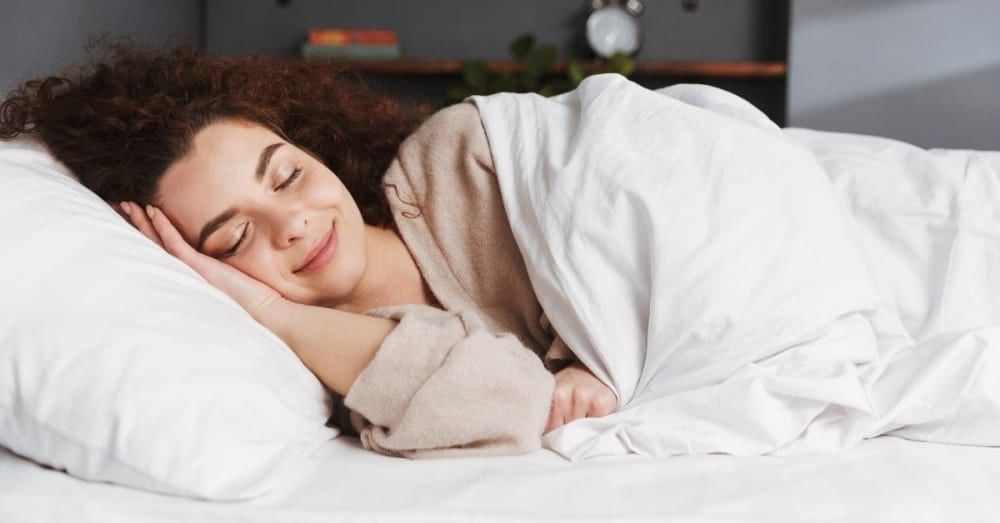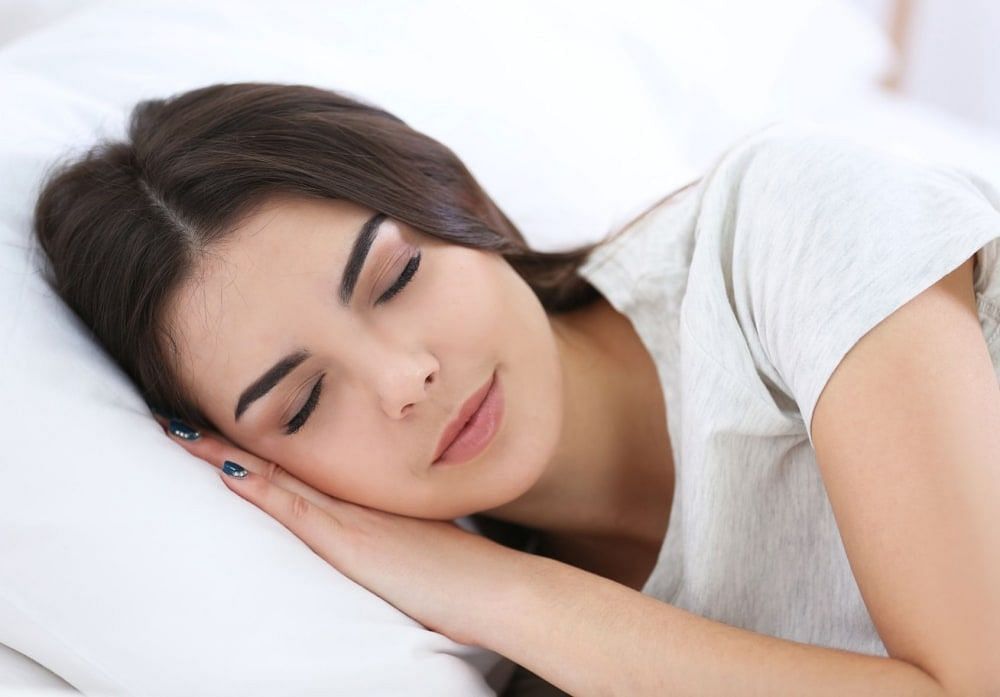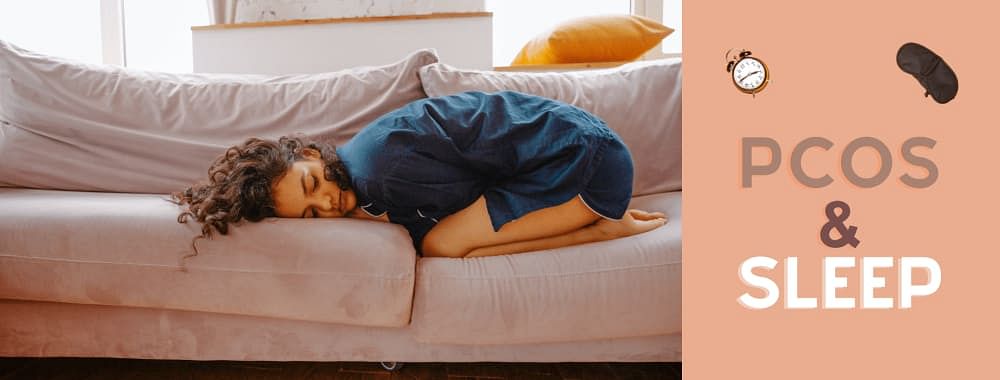How to Sleep During Periods
Getting proper sleep during your period can be a tough task. How to sleep during periods to avoid pain is still a troublesome problem. According to studies, 30% of women have difficulty sleeping during their periods. Menstruation or periods are a natural part of any woman's life. Mood fluctuations, sugar cravings, menstruation cramps, and insomnia are just some of the side effects.
Sleeping can be difficult to achieve during periods due to hormonal fluctuations. Some women find it difficult to fall asleep, resulting in hours of tossing and turning. Women often question how to sleep during period to avoid leakage; therefore, let's discuss the best period hacks. Period hacks are one of the most important things to have on hand during those days of the month.
Effects of Periods on Sleep
Women, on average, have more sleep problems than men, and being on their period may exacerbate these issues. Premenstrual hormonal fluctuations can lower serotonin secretion, a hormone that regulates the body's sleep cycle. Women with premenstrual dysphoric disorder (PMDD) have more trouble sleeping than women without the disorder.
PMDD has been connected to a woman's diminished reaction to melatonin, the hormone that signals your body when to sleep and when to wake up, according to research. This lowered response has the potential to throw off a woman's circadian rhythms, which are the body's natural responses to light and dark that signal sleeping, waking, and other activities.
Menstrual symptoms such as cramps and headaches, in addition to disrupting sleep, can make it difficult to fall and stay asleep. Here are great tips to sleep while periods.
Tips to Sleep Better During Period & Avoid Pain
1. Find a Convenient Sleeping Position
Our sleeping position might affect the quality of our sleep, especially if we are experiencing menstruation symptoms. Experiment with several sleeping positions, such as lying on your back or side, to see which one feels the most comfortable. Sleeping on one's side can assist in regulating breathing and relieve some sleep apnea symptoms. If you're having trouble sleeping in this position because of pain, consider the foetal position, which entails bending your legs and curling your body into a ball. Place a pillow between your knees to ease joint pressure. This is how to sleep during periods to avoid pain and irritation.
2. Snuggling in the Foetal Position for a Nap
Have you ever witnessed a foetus in its mother's womb? You must be curled up in that position. The muscles around your abdomen relax while you sleep like way, bringing much-needed relief from period cramps. Furthermore, if you sleep in this position with a pillow, there is little danger of leakage.
Directions: Take the pillow over your neck and lay it between your legs while lying down on your back. Check to see if your legs are straight. They shouldn't be any taller or shorter than you are because it will impair your total blood flow. If you don't have a spherical cushion, wrap a towel over your knees and place it between them. After a few minutes, you will notice that your muscles are relaxed and you are at ease.
3. Taking a Nap While in the Child Pose
You're undoubtedly curious as to who sleeps in a yoga pose. Some people, believe it or not, do. The amount of comfort your muscles feel while you are in a kid pose, according to studies, is tremendous. It's as if your muscles are at ease and you are relaxed. This pose is also beneficial for those of you who get headaches during your period. It also helps with sleep induction. This is how to sleep while periods because this stance is proven to calm both the body and the mind.
4. Keep Your Bedroom at a Comfortable Temperature
Your body normally lowers its core temperature to prepare for sleep. On the other hand, hormone fluctuations can throw a wrench in the works. To assist your body in maintaining a comfortable core temperature, set your thermostat between 60 and 67 degrees Fahrenheit.
5. Prefer Sleeping Alone
Many people share a bed with a spouse at night. Even if you are among the majority, if you and your partner have different sleep habits or one of you snores at night, it may be worthwhile to explore sleeping alone. Your sleep quality may suffer due to the interruption, and your immune system may be compromised as well.
Before going to bed, spend a few minutes cuddling with your lover. Cuddling has some of the same benefits as massage therapy in terms of boosting your mood and lowering anxiety, allowing you to unwind and sleep better.
6. Maintain a Regular Sleep Schedule
You are less likely to suffer from period-related disruptions to your circadian rhythms if you go to bed and wake up at consistent times. Even on weekends, sticking to a routine teaches your body to detect when it's time to sleep.
7. Exercise Regularly
Physical activity is one natural way to induce sleep. Exercising in the early morning or late afternoon can help raise your body temperature and then allow it to drop, causing drowsiness right before bedtime. Choose an enjoyable activity, such as yoga, running, or swimming.
8. Eat Better
Digestive issues such as diarrhoea, nausea, or indigestion can sometimes accompany other menstrual problems. Avoid eating large meals close to bedtime to avoid aggravating these and other intestinal issues. Instead, try to consume small regular meals that are primarily made up of lean foods throughout the day.
9. Choice of Food Items
Tryptophan, also known as L-tryptophan, is an amino acid that can be found in milk, turkey, chicken, eggs, and a variety of dairy products. Tryptophan has been linked to decreased depression as well as increased sleep time. You could also try cherries or tart cherry juice, both of which contain a lot of melatonin. However, consult with your doctor before incorporating any supplements into your routine.
10. Caffeine Should Be Limited
Limit your caffeine consumption throughout the day, especially six hours before bedtime. Caffeine is a stimulant that can keep you awake, as anyone who has had a cup of coffee too close to bedtime can attest. Tea, chocolate, cocoa, soft drinks, and pain relievers are all caffeine sources.
11. Make Time for Relaxation
Your blood pressure and respiratory rate both increase when you are stressed. This hyper-arousal state can make it difficult to relax and fall asleep. Deep breathing techniques may be beneficial in relieving stress. Make sure your lower stomach moves as you inhale and exhale for three seconds each time, whether you're sitting or lying down.
Also Read: Which Is the Best Direction to Sleep? As Per Vastu & Science
How to Sleep During Periods to Avoid Leakage
Even though we suggested a few ways to sleep better and avoid pain, you may experience some sort of leakage if you don’t take proper precautions. So let’s discuss some ways to avoid such leakage that will help you sleep stress-free during your period -
1. Use a Tampon
You can wear a tampon as long as you sleep for less than 8 hours. Tampons fit inside your body, so you won't leak while moving around in bed. In case you have a habit of oversleeping, this isn't the best option for you since wearing tampons for longer than 8 hours increases your risk of infection. For those likely to snooze a lot, you may want to go with a pad instead.
2. Use Overnight Pads
Overnight pads are designed in such a way as to allow for a wide hip guard, which protects you from leaks, regardless of your sleep position. Their layers are antibacterial and prevent the growth of bacteria. They usually feature an ultra-thin absorbent core that secures and prevents bleeding during menstruation.
3. Wear Extra Underwear
To prevent leakage, you can also wear extra underwear. By wearing a second pair of underwear, you will be able to keep your pad in place while you sleep. Plus, the extra fabric means that if you do leak, you have an extra layer of protection before it makes its way to your sheets.
4. Preparation and Planning
Keeping track of your period can help you sleep better during your period. Having an idea of when your next period is due helps you plan what pants to wear, what products to use, and extra precautions, such as using mattress protectors or dark towels on your bed.
5. Get Out of Bed Slowly in the Morning
If you wear a pad to prevent leaks during your period, it's a good idea to get up slowly in the morning. Due to gravity, your menstrual blood will have pooled in your vagina instead of draining all at once. When you get up, all of the menstrual fluid that has accumulated in your vagina will come out at once. Get out of bed slowly at this point to prevent a leak.
References
- Shazia Jehan, Evan Auguste, August 2017; Sleep and Premenstrual Syndrome - https://www.ncbi.nlm.nih.gov/pmc/articles/PMC5323065/
- Eric Suni; PMS and Insomnia - https://www.sleepfoundation.org/insomnia/pms-and-insomnia








